American Civil War Chronicles
Extracts from the journal of Commander Semmes, C.S. Navy, commanding C.S.S. Sumter
August 21, 2021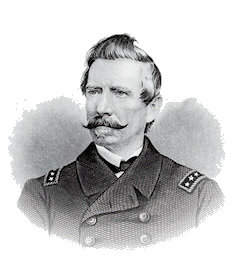
Two guns for their own use
August 21, 2021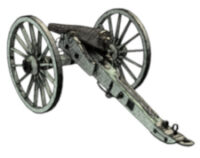
Wednesday, August 21.—The Twenty-eighth Pennsylvania received two guns for their own use. Signs of a demonstration show themselves this evening. All our baggage was sent off; the tents only left standing, ready to be burnt in case we had to leave.
“The first day of camp life is past, and we had our first experience of a night in camp, sleeping on straw for a bed.”–Alexander G. Downing.
August 21, 2021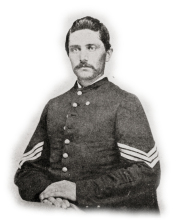
Wednesday, 21st—We drew our army cooking utensils this morning and one day’s rations, and then cleaned up our camp. Besides a part of the Eighth Iowa Infantry, there is a part of the Second Iowa Cavalry in camp. The first day of camp life is past, and we had our first experience of a night in camp, sleeping on straw for a bed.
Journal of Surgeon Alfred L. Castleman.
August 21, 2021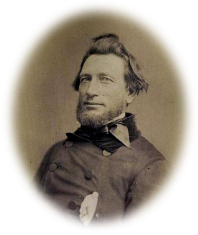
21st.–I sit down to-night, journal on my knee, to write by the light of a tallow candle, stuck into the mouth of a whisky bottle, (whisky all out), that “I have nothing of importance to note to-day.”
William Howard Russell’s Diary: American Vanity.—My own unpopularity for speaking the truth.
August 21, 2021
August 21st.–The echoes of Bull Run are coming back with a vengeance. This day month the miserable fragments of a beaten, washed out, demoralised army, were flooding in disorder and dismay the streets of the capital from which they had issued forth to repel the tide of invasion. This day month and all the editors and journalists in the States, weeping, wailing, and gnashing their teeth, infused extra gall into their ink, and poured out invective, abuse, and obloquy on their defeated general and their broken hosts. The President and his ministers, stunned by the tremendous calamity, sat listening in fear and trembling for the sound of the enemy’s cannon. The veteran soldier, on whom the boasted hopes of the nation rested, heartsick and beaten down, had neither counsel to give nor action to offer. At any moment the Confederate columns might be expected in Pennsylvania Avenue to receive the welcome of their friends and the submission of their helpless and disheartened enemies.
All this is forgotten–and much more, which need not now be repeated. Saved from a great peril, even the bitterness of death, they forget the danger that has passed, deny that they uttered cries of distress and appeals for help, and swagger in all the insolence of recovered strength. Not only that, but they turn and rend those whose writing has been dug up after thirty days, and comes back as a rebuke to their pride.
Conscious that they have insulted and irritated their own army, that they have earned the bitter hostility of men in power, and have for once inflicted a wound on the vanity to which they have given such offensive dimensions, if not life itself, they now seek to run a drag scent between the public nose and their own unpopularity, and to create such an amount of indignation and to cast so much odium upon one who has had greater facilities to know, and is more willing to tell the truth, than any of their organs, that he will be unable henceforth to perform his duties in a country where unpopularity means simply a political and moral atrophy or death. In the telegraphic summary some days ago a few phrases were picked out of my letters, which were but very faint paraphrases of some of the sentences which might be culled from Northern newspapers, but the storm has been gathering ever since, and I am no doubt to experience the truth of De Tocqueville’s remark, “that a stranger who injures American vanity, no matter how justly, may make up his mind to be a martyr.”
A Diary of American Events.–August 21, 1861
August 21, 2021
August 21.–By special order of the War Department the body of men at Fortress Monroe known as the Naval Brigade or Union Coast Guard, were formed into a volunteer regiment.–Eight thousand troops were reviewed at Washington by the President and General McClellan.–N. Y. Herald, August 22.
–The Executive Committee of the New York Union Defence Committee reported : that, to this date, it had spent in the equipment of various regiments, five hundred and eighty-one thousand six hundred and eighty-nine dollars; for arms and ammunition, two hundred and twenty-six thousand five hundred and eighty-nine dollars; and for relief to soldiers’ families, two hundred and thirty thousand dollars.–See Journal of the Board of Aldermen, N. Y.
–At Alexandria, Va., through the exertions of Major Lemon, commanding the guard there, Miss Windle, formerly of Delaware, but more recently of Philadelphia, and of late a correspondent of the Southern press, was arrested in the act of leaving for Washington by the steamboat. She is a highly-educated lady, and the authoress of several works published while she resided in Philadelphia, among which was a “Legend of the Waldenses,” also “A Visit to Melrose.” Miss Windle has resided in Alexandria for the past month, where her movements have been closely watched. She boldly avowed her secession proclivities, and made no secret of her correspondence with the leaders of the rebel army. After a hearing she was sent to Washington.
Augustus Schaeffer, of Gloucester, New Jersey, belonging to Captain Sinn’s Philadelphia Company of Cavalry, was severely wounded in the head yesterday, by a pistol ball, while out with a scouting party toward Fairfax Court House, Va.–Baltimore American, August 23.
–Jefferson Davis approved an act empowering the President of the “Confederate” States to appoint two more Commissioners to Europe. The act empowers the President to determine to what nations the Commissioners now in Europe shall be accredited, and to prescribe their duties. The two additional Commissioners will receive the same as those now in Europe. Jeff. Davis also approved an act for the aid of the State of Missouri in repelling the invasion and to authorize her admission into the Confederacy. The preamble sets forth that the people of Missouri have been prevented by the unconstitutional interference of the Federal Government from expressing their will in regard to union with the Confederates, and that Missouri is now engaged in repelling the lawless invasion of her territory by armed forces. The Confederate Government consider it their right and duty to aid the Government and people of Missouri in resisting this invasion, and securing the means and opportunity of expressing their will upon all questions affecting their rights and liberties.
The President of the “Confederate” States is authorized to cooperate, through the military power of his Government, with authorities of Missouri in defending that State against the invasion of their soil by the United States, in maintaining the liberty and independence of Missouri, with power to accept the services of troops sufficient to suit the purpose. The act provides for the admission of Missouri to the Confederacy, on an equal footing with the other States, when the Provisional Constitution shall be ratified by the legally constituted authorities of Missouri, and an authenticated copy shall be communicated to the President of the Southern Confederacy.
The President will then, in accordance with the provisions of the act, issue his proclamation announcing the admission of Missouri into the Confederacy. She recognizes the Government in Missouri, of which Claiborne F. Jackson is Chief Magistrate.–Louisville Courier, August 31
–The First Regiment of Long Island Volunteers, (Brooklyn, N. Y., Phalanx,) commanded by Colonel Julius W. Adams, took their departure for the seat of war. The men were uniformed in a substantial blue dress, and their general appearance indicated that they were ready to do good service. They were armed with the common smooth-bore musket.–The Anderson Zouaves, N. Y. S. V., under the command of Colonel John Lafayette Riker, left camp Astor, Riker’s Island, for Washington. The uniform of the Zouaves is dark blue loose jackets, and light blue baggy trowsers. For head covering, a part of the men have the red fez, with blue tassel, and the others dark blue caps. Their arms are the old, smooth-bore muskets, with shank bayonets, and percussion locks altered from flint locks.–N. Y. Tribune, August 22.
–The Memphis Avalanche of this day says that the “conviction is becoming general throughout the South that the war can only be ended by carrying it into the North. The Northern abolitionists will have to be scourged into good behavior. The sooner this shall be done the better. All the mighty energies and resources of the South should be put forth to crush out the Northern conspiracy against her. The bombardment of a few Northern cities would bring our enemies to their senses. Philadelphia and Cincinnati present convenient points of attack. Maryland and Kentucky, we have good reason to believe, will soon be with us, when these abolition cities shall receive the especial attention of the gallant avengers of Southern wrongs.”
–In “Confederate” Congress in session at Richmond, Vo., a resolution of thanks to Ben McCulloch and his forces, was introduced by Mr. Ochiltree of Texas, and passed unanimously. -(Doc. 205.)
–This day a very large and beautiful flag was presented to the battalion of Pennsylvania troops stationed at Annapolis Junction, Md., by the Union ladies of Prince George’s and Montgomery counties. The ceremonies were very interesting. James Creigh, Esq., made the presentation speech, and Capt. McPherson the reception speech. A large number of persons were present. – Washington Star, August 23.
– William F. Barry, chief of artillery in Gen. McClellan’s staff, yesterday was appointed brigadier-general of volunteers. – Philadelphia Press, August 22.
– The Twenty-third Regiment of Pennsylvania Volunteers, under the command of Col. David B. Birney, numbering about five hundred and fifty men, passed through Baltimore, Md., en route for Washington city. A large proportion of the men were under Colonel Dare, in the same regiment, which had already served three months under General Patterson. They are all uniformed similar to regulars. Lieutenant-Colonel Wilhelm held the same rank in the Eighteenth Regiment of three months’ volunteers, under Colonel Lewis, and is an experienced officer, having seen service in the Prussian army. Several of the companies attached to the command are well drilled in the Zouave exercise, and also uniformed. – Baltimore American, August 22.
Postmaster-General Blair, in response to an inquiry on the subject, says he has neither the power to interdict nor to suspend intercourse between the loyal and rebellious States, by private expresses or otherwise. The power rests with the War and Treasury Departments alone, and so long as these departments forbear to exercise it, correspondence between the insurgents of the South and their friends and abettors in the North, may be lawfully continued. His power over the matter extends only to the protection of the revenues of the Department from fraud by the conveyance of this circuitous correspondence over the Post routes of the United States, partly in the mails, and partly by private expresses, unlawfully. This the Postmaster-General believes has been effectually done in the manner set forth in his letter on the subject to General McClellan, published a few weeks ago. He concludes by saying:
“You have doubtless observed that the President, in pursuance of an act of Congress, passed at its recent session, has by his proclamation of the 10th instant, declared that all commercial intercourse between the insurgent States or the people thereof and the loyal States is unlawful. It is presumed that instructions will be issued by the Treasury Department for the enforcement of this declaration, and that the abuse of which you complain will be effectually suppressed.”
–The First Regiment of Western Virginia Volunteers returned to Wheeling from the scat of war. Their reception was enthusiastic, the people turning out in a body to welcome them. – Wheeling Intelligencer, August 22.
–The scouting party put off the railroad train which was fired into yesterday morning at Syracuse, Mo., arrived at Jefferson City. They report having killed two and wounded several of the secessionists, and bring in five prisoners.
Governor Gamble has appointed division inspectors in five of the seven military districts in Missouri, for the purpose of mustering men into service under the militia law of 1859, revived by the State Convention. The Governor calls upon the citizens to come forward promptly to sustain the peace by the suppression and dispersion of the armed bauds of men who are now committing violence in the different parts of the State. As soon as troops are enrolled they will hold themselves in readiness to march at the call of the Executive to enforce order. Any regular organization will be permitted to volunteer in the service of the United States, if the members so desire.–The following is the form of oath to be administered to the militia:
“You each and every one of you do solemnly swear that you will honestly and faithfully serve the State of Missouri against all her enemies, and that you will do your utmost to sustain the Constitution and laws of the United States and of this State; and you do further swear that you will truly execute and obey the legal orders of all officers properly placed over you whilst on duty, so help you God.”
Civil War Day-By-Day
August 21, 2021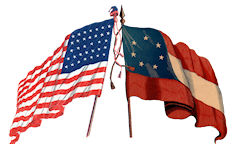
August 21, 1861
- Second Wheeling Convention adjourns.
A Chronological History of the Civil War in America1
- Wheeling Convention adjourned sine die.
- Skirmish at Cross Lanes, Va.
- A Chronological History of the Civil War in America by Richard Swainson Fisher, New York, Johnson and Ward, 1863
A Rebel War Clerk’s Diary at the Confederate States Capital, By John Beauchamp Jones
August 20, 2021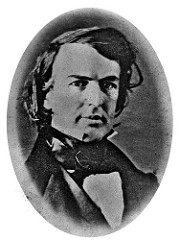
AUGUST 20th.—Secretary Walker returned last night, having heard of the death of Col. Jones before reaching his destination. I doubt whether the Secretary would have thought a second time of what had been done in his absence, if some of his friends had not fixed his attention upon it. He shut himself up pretty closely, and none of us could see or hear whether he was angry. But calling me into his room in the afternoon to write a dispatch which he dictated, I saw, lying on his table, an envelope directed in his own hand to the President. Hints had been circulated by some that it was his purpose to resign. Could this communication be his resignation? It was placed so conspicuously before me where I sat that it was impossible not to see it. It was marked, too, “immediate.”
Extracts from the journal of Commander Semmes, C.S. Navy, commanding C.S.S. Sumter
August 20, 2021
“It was our first meal in the army and consisted of boiled potatoes, fried bacon and baked beans.”–Alexander G. Downing.
August 20, 2021
Tuesday, 20th–I went early this morning to Inland, where all who enlisted were to meet and go to Davenport.[i] Several of the friends came in to see us off. There were forty-five of us and at 9 o’clock we left in wagons for Davenport. After a hot, dusty ride we arrived at Davenport at 4 o’clock in the afternoon, and marched out to Camp McClellan, where they received us very kindly. We had very fine barracks to go into and the boys of the Eighth Iowa had a good supper for us. It was our first meal in the army and consisted of boiled potatoes, fried bacon and baked beans. We have lots of straw to sleep on at night. We were to meet a part of a company from Le Claire under command of Captain Foster and together form one company in the Eighth Iowa Infantry. But Captain Foster did not come, and since there are only eight Le Claire boys here we have not enough to make a company.
[i] When I bade father good-by, he said: “Well, Alec, as you have made up your mind to go into the army, I want you to promise me that you will not enter into any of the vices that you will come in contact with while in the army, but try to conduct yourself just as if you were at home.” Of course I was not an angel while in the army, but I always remembered father’s advice and to that I attribute what little success I have had in life—and this is my seventy-second year. Father was in his forty-sixth year, but he told me that if it were not for leaving the family alone, he would go with me. He was a strong Union man, and his father had served all through the War of the Revolution, in the command of General Wayne.—A. G. D.
“General Lyon killed and his troops routed.”—Diary of a Southern Refugee, Judith White McGuire.
August 20, 2021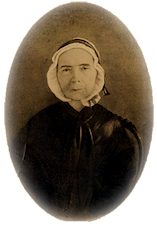
August 20.—We are rejoicing over a victory at Springfield, Missouri—General Lyon killed and his troops routed. Our loss represented large. I have only seen the Northern account.
No news from home, and nothing good from that quarter anticipated. We are among dear, kind friends, and have the home feeling which only such genuine and generous hospitality can give; but it sometimes overpowers me, when I allow myself to think of our uncertain future.
“I was at home most of the day contriving what course to pursue for the time being.”—Horatio Nelson Taft
August 20, 2021
TUESDAY, AUGUST 20, 1861.
Many people in the City were much alarmed last night at a report that “the rebels had crossed the River below and were marching on Washington.” Similar rumors are constantly afloat. Went to the Express Office and sent off (as requested) Lieut Martins trunk which was left with me. Called at the “National” and also a[t] Bradys Photograph Gallery. Saw Maj Anderson there. I was at home most of the day contriving what course to pursue for the time being.
______
The three diary manuscript volumes, Washington during the Civil War: The Diary of Horatio Nelson Taft, 1861-1865, are available online at The Library of Congress.
5th Excellsiors
August 20, 202174th Infantry Regiment .
Civil War .
Fifth Excelsior Regiment; Fifth Regiment, Sickles’ Brigade.
This regiment was recruited under the special authority of the War Department, issued to Gen. D. E. Sickles; organized under Col. Charles K. Graham at Camp Scott, L. I., and mustered in the service of the United States for three years between June 30 and October 6, 1861. (New York State Military Museum and Veterans Research Center)
__________
Alfred R. Waud Civil War Art
5th excelsiors
Sketch of two soldiers.
1 drawing on cream paper : pencil ; 9.9 x 6.4 cm. (sheet).
CREATED/PUBLISHED: [between 1860 and 1865]
Part of Library of Congress Civil War drawing collection
“…so sleepy; no rest or sleep the night before.”—Rutherford B. Hayes
August 20, 2021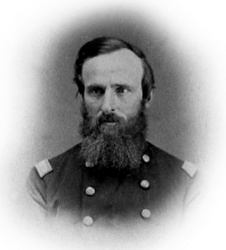
August 20. Tuesday.–After marching three miles we stopped for water and to let the teams come up. One man reclining was accidentally shot by another hitting his foot against the hammer of a musket. Poor Carr received the ball in the heel of his shoe; it passed up his leg, grazing it merely, grazed his body and arm and shoulder, and left him without a serious wound! Fortunate. Reached Buckhannon about 3:30 P. M.–so sleepy; no rest or sleep the night before. Stopped at noon–got good bread and milk, honey and blackberry jam, and slept nearly an hour in a barn. Buckhannon a pretty place.
William Howard Russell’s Diary: Harper’s Ferry.—John Brown.—Back by train to Washington.
August 20, 2021
Next day (20th)I took the train, at Ellicott’s Mills, and went to Harper’s Ferry. There is no one spot, in the history of this extraordinary war, which can be well more conspicuous. Had it nothing more to recommend it than the scenery, it might well command a visit from the tourist; but as the scene of old John Brown’s raid upon the Federal arsenal, of that first passage of arms between the abolitionists and the slave conservatives, which has developed this great contest; above all, as the spot where important military demonstrations have been made on both sides, and will necessarily occur hereafter, this place, which probably derives its name from some wretched old boatman, will be renowned for ever in the annals of the civil war of 1861. The Patapsco, by the bank of which the rail is carried for some miles, has all the character of a mountain torrent, rushing through gorges or carving out its way at the base of granite hills, or boldly cutting a path for itself through the softer slate. Bridges, viaducts, remarkable archways, and great spans of timber trestle work leaping from hill to hill, enable the rail to creep onwards and upwards by the mountain side to the Potomac at Point of Rocks, whence it winds its way over undulating ground, by stations with eccentric names to the river’s bank once more. We were carried on to the station next to Harper’s Ferry on a ledge of the precipitous mountain range which almost overhangs the stream. But few civilians were in the train. The greater number of passengers consisted of soldiers and sutlers, proceeding to their encampments along the river. A strict watch was kept over the passengers, whose passes were examined by officers at the various stations. At one place an officer who really looked like a soldier entered the train, and on seeing my pass told me in broken English that he had served in the Crimea, and was acquainted with me and many of my friends. The gentleman who accompanied me observed, “I do not know whether he was in the Crimea or not, but I do know that till very lately your friend the Major was a dancing master in New York.” A person of a very different type made his offers of service, Colonel Gordon of the 2nd Massachusetts Regiment, who caused the train to run on as far as Harper’s Ferry, in order to give me a sight of the place, although in consequence of the evil habit of firing on the carriages in which the Confederates across the river have been indulging, the locomotive generally halts at some distance below the bend of the river. [continue reading…]
A Diary of American Events.–August 20, 1861
August 20, 2021
August 20.–General Rosecrans issued the following card to the press, dated Clarksburg, Va.:–The General Commanding the Army of occupation in Western Virginia, and the Department of the Ohio, invites the aid of the press to prevent the enemy from learning, through it, the position, strength, and movements of the troops under his command. Such information is of the greatest service to the enemy, and deprives the commander of our own forces of all the advantages which arise from the secrecy of concentration and surprise. These advantages are constantly enjoyed by the rebels, whose press never betrays them.
–The bill entitled an Act to increase the Corps of Artillery, and for other purposes, passed by the “Confederate” Congress at Richmond, Va., was approved by Jeff. Davis and became a law.–(Doc. 198.)
–A Skirmish took place to-day at Hawks’ Nest, in Kanawha Valley, Va., eight miles beyond the river. The rebels, some four thousand strong, advanced to where the Eleventh Ohio Regiment had erected barricades, and were driven back with a loss of fifty killed and a number wounded and taken prisoners. The Federal loss was only two slightly wounded and one missing. They captured quite a number of horses and equipments.–(Doc. 199.)
–The New Orleans Delta declares: We want no corn, no flour, no swill-fed pork, no red-eye, no butter or cheese from that Great Western Reserve, no “sass,” no adulterated drugs, no patent physics, no poisoned pickles. We want none of these, we say, to exchange our money for them. And we will not pay the “Blue Grass” country of Kentucky for its loyalty to Lincoln by opening our markets to its hemp fabrics. Let it lay in the bed it has chosen until it awakes to a sense of its duty as well as its interest. We must discriminate in favor of our gallant ally, Missouri, and give her the benefits of our marts in preference to either open foes or insidious neutrals. It is the clear duty of our Government now to declare Kentucky under blockade. If in the existing state of affairs a sea separated us from that State, it would, with the naval power to execute our behests, behoove us to close the ports of a people who seek for themselves profit by impoverishing us and enriching our foes. The fact of their territorial contiguity does not weaken the argument. Kentucky and the West must be made to feel this war, and feel it until they cry peccavi.
–The Fifth Regiment of the Excelsior Brigade, N. Y. S. V., under the command of Col. C. K. Graham, left New York for the seat of war.–N. Y. Herald, August 21.
–A Train arrived at Jefferson City, Mo., this morning from Syracuse, having on board twenty-five passengers and two hundred and fifty United States soldiers. When the train was near Lookout station, about thirty shots were fired into it from behind a wood-pile and bush skirting the road, killing one of the soldiers and wounding six others, one of them fatally. One secessionist was killed. The train was stopped half a mile beyond the point where the attack was made, and two hundred soldiers put off and sent in pursuit of the miscreants. Guerilla parties are scouring the counties west of Jefferson City, selling property and arresting prominent citizens.–N. Y. World, August 21.
–The Second and Fourth battalions of Boston, Mass., voted unanimously to offer their services to the Government for three months.
Gov. Andrew, in a brief proclamation, calls upon citizens of Massachusetts to come forward and fill up the regiments already accepted for the war.–(Doc. 200.)
–August Douglas, a merchant of Baltimore, was arrested in Philadelphia, charged with an attempt to induce Lieutenant Hain to join the rebels, promising him higher rank and pay.–N. Y. Evening Post, August 21.
–The Albany Journal of to-day has the following: “Men and presses who are to-day preaching ‘Compromise’ and ‘Peace,’ are doing more to cripple the Government and help treason than the rebel armies themselves. We would hang a spy who should be caught prowling about our camp to obtain information to be used against as; but we must tolerate if not respect these loyal traitors who labor in the rostrum and through the press to aid the enemy!”
–This morning Albert Sanford, United States marshal of Rhode Island arrived at New York from Newport, having in custody a gentleman named Louis de Bebian, who claims to be a French citizen, but a resident of Wilmington, North Carolina. This gentleman is charged with some kind of political offence, or else appears to be suspected of going to Europe in the service of the Confederate States, or for purposes inimical to the United States. His story, which does not differ much from that of the marshal who has brought him here as a prisoner, is as follows:–He has been a resident and carrying on business as a merchant in Wilmington for several years, and being desirous to go to Europe on business and to see his family, he took passage on board a British vessel called the Adelso, bound to Halifax, N. S., in order to meet one of the Canard steamers. This vessel sailed from Wilmington without hindrance. During the storm of the 12th instant the vessel became disabled, and the captain, rather than let her go down with all hands on board, bore up for a friendly port, as he supposed, in distress. Having got safely into Newport, Rhode Island, under the British flog, the Adelso was boarded by the revenue yacht Henrietta, Lieut. Bennett, who, ascertaining that the Adelso was last from Wilmington, South Carolina, took possession of her and put a prize crew of one officer and five men on board, sealed up the trunks and papers of the master and passengers, and made them all prisoners, and processes for libel and condemnation were issued in the courts of that district by the captors. M. Bebian wished to go ashore and see the French consul, or to be permitted to go to some part of the British dominions, but was refused. After being kept in custody and subjected, as he complains, to a number of personal indignities, ho was sent to New York in custody, and will be transferred to one of the military prisons in the harbor until further orders as to his ultimate destination. Among the papers taken from the prisoner were letters of credit to the amount of $40,000, with which he was to purchase clothing, arms and iron, for shipment to Wilmington, N. C., and other places south.–N. Y. Evening Post, August 20.
–General McClellan assumed the command of the army of the Potomac, and announced the officers attached to his staff.–(Doc. 201.)
–The Convention of Western Virginia passed the ordinance creating a State, reported by the select committee on a division of the State, this morning, by a vote of fifty to twenty-eight. The boundary as fixed includes the counties of Logan, Wyoming, Raleigh, Fayette, Nicholas, Webster, Randolph, Tucker, Preston, Monongahela, Marion, Taylor, Barbour, Upshur, Harrison, Lewis, Braxton, Clay, Kanawha, Boone, Wayne, Cabell, Putnam, Mason, Jackson, Roane, Calhoun, Wirt, Gilmer, Ritchie, Wood, Pleasants, Tyler, Doddridge, Wetzel, Marshall, Ohio, Brooke, and Hancock. A provision was incorporated permitting certain adjoining counties to come in if they should desire, by expression of a majority of their people to do so. The ordinance also provides for the election of delegates to a Convention to form a constitution; at the same time the question “for a new State” or “against a new State” shall be submitted to the people within the proposed boundary. The election is to be held on the 24th of October. The name of the new State is to be Kanawha.– National Intelligencer, August 22.
–Got. Curtin issued a proclamation to the freemen of the Commonwealth of Pennsylvania, “in which he urges them again to sustain the country in its danger,” and calls upon every man to “so act that he will not be ashamed to look at his mother, his wife, or sisters.”–(Doc. 202.)
–Gen. Butler assumed command of the volunteer forces near Fortress Monroe in pursuance of the following order:
Headquarters Department of Virginia, &c.
Fortress Monroe, August 20, 1861.
Special Order No. 9.–Major-General B. F. Butler is hereby placed in command of the volunteer forces in this department, exclusive of those at Fort Monroe. His present command, at Camps Butler and Hamilton, will include the First, Second, Seventh, Ninth, and Twentieth Regiments, the battalion of Massachusetts Volunteers, and the Union Coast Guard and Mounted Rifles. By command of
Major-General Wool.
C. C. Churchill, Adjutant-General.
–Sterling Price issued a proclamation at Springfield, Mo., to the effect, that a great victory had been won; that northern oppressors of Missouri had been driven back; that every one belonging to the Home Guard organization would be regarded and treated as an enemy to the Southern Confederacy; but that his protection would extend to such who quietly return to their homes, and allow the Southern sway to prevail, and that whoever recognized the provisional government of Missouri would be considered as an enemy to the State, and dealt with accordingly.–(Doc. 204.)
Civil War Day-By-Day
August 20, 2021
August 20, 1861
- The pro-Union Second Wheeling Convention calls for the creation of the state of Kanawha
A Chronological History of the Civil War in America1
- Skirmish at Hawk’s Nest, in the Kanawha Valley, Va.: 4,000 rebels attacked the barricades of the 11th Ohio Regiment, and were driven back with the loss of 50 killed.
- Attack on Charleston, Mo., and rout of 1,200 rebels.
- Wheeling Convention passed an ordinance, erecting a new State to be called “Kanawha,” by a vote of 50 to 28. The boundary as ?xed included the counties of—Logan, Wyoming, Raleigh, Fayette, Nicholas, Webster, Randolph, Tucker, Preston, Monongahela, Marion, Taylor, Barbour, Upshur, Harrison, Lewis, Braxton, Clay, Kanawha, Boone, Wayne, Cabell, Putnam, Mason, Jackson, Roan, Calhoun, Wirt, Gilmer, Ritchie, Wood, Pleasants, Tyler, Doddridge, Wetzel, Marshall, Ohio, Brooke, and Hancock. Other adjoining counties might be admitted, if acceded to by a majority of the voters.
- A Chronological History of the Civil War in America by Richard Swainson Fisher, New York, Johnson and Ward, 1863
“Rumors of the “rebels” crossing the River into Maryland. Hard fighting expected soon near the City.”—Horatio Nelson Taft
August 19, 2021
MONDAY 19
This will pass for a rainy day and a disagreable one. I was at Genl Porters office (Provost Marshall), a great crowd there after “passes” to Virginia. The Court Marshall was sitting in the same building. I saw four of the mutineers of the NY 79th who were awaiting their trial. They were hand cuffed. Went to the P.O. and was awhile at the Pat office. Rumors of the “rebels” crossing the River into Maryland. Hard fighting expected soon near the City. Called upon Mr Reynolds to sell him my furniture, think of sending the family north soon.
______
The three diary manuscript volumes, Washington during the Civil War: The Diary of Horatio Nelson Taft, 1861-1865, are available online at The Library of Congress.
The Southern forces have beaten the Union Army in the West.
August 19, 2021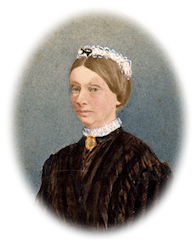
19 August
Things go on very successfully. The Southern forces have beaten the Union Army in the West. William was made one of the prize commissioners and went to North Carolina to see after a prize. He placed seals on it and took possession and returned home,—rather a fatiguing journey to Beaufort on the Coast. Since his return the Governor of N. C. has taken possession, too, so the matter has to be decided in Court. W. might get 1 or 2 hundred dollars for his work:—perhaps he will only have his expenses paid. There is much fever all over the Country now, and also in the City, Typhoid. The accounts from the Army are that 20 thousand troops are ill & wounded &c., and that the South Carolina troops are the worst provided & the North Carolina the best. The Counties are assessed in that State & the men provided in that way. There was a sad accident on Sulivan’s Island, Mr Tom Porcher trying to save his niece while bathing was drowned, also the young lady, Miss Ellen White, 14 years old.—
Papa writes that he has been suffering from his gout.—
“After a world of confusion…, we got off at daylight.”—Rutherford B. Hayes
August 19, 2021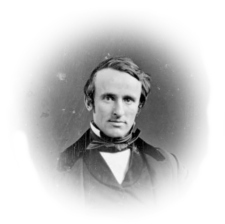
August 19. Monday.–No more rumors. A tolerably pretty day. At 12 M. [midnight] got orders to quietly strike tents and with three days’ rations and the minimum amount of baggage move to Buckhannon. Two companies, Captain Drake’s and Captain Zimmerman’s, had just returned from a scouting expedition to Walkersville, etc. No rest yet. After a world of confusion, aggravated by an incompetent quartermaster, we got off at daylight.
General Scott issues a comprehensive pass to Eliza and Georgy to give them access to outlying camps and hospitals.—Woolsey family letters.
August 19, 2021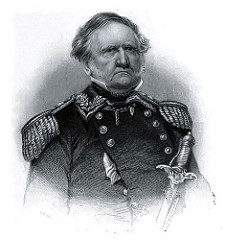
Headquarters of the Army,
Washington, Aug. 19, 1861.
Mrs. Joseph Howland (wife of the Adjutant of the New York 16th Regt.), sister Miss G. M. Woolsey, and man-servant (Stanislas Moritz) will be permitted to pass the Bridges to Alexandria (and return) and are commended to the courtesy of the troops.
Good daily.
Winfield Scott.
By command:
H. VAN RENSSELAER,
Col. and Aid de Camp.
Armed with this we constantly dashed over the Long-Bridge, the carriage filled with all sorts of supplies from the abundant and unfailing stores committed to us by the family and friends and societies at home. Warm woolen socks were always one item. Abby and many others never ceased knitting them during the war. Wherever we found a camp-hospital in need, there we thankfully left comforts from home, or arranged that the Sanitary Commission, whose general office was directly opposite to the Ebbitt House, should supply the want. The Commission on its side was always glad to have our report and responded promptly to all our suggestions.
Extracts from the journal of Commander Semmes, C.S. Navy, commanding C.S.S. Sumter
August 19, 2021
John B. Jones goes to the presidential mansion and requests to see Jefferson Davis.—A Rebel War Clerk’s Diary at the Confederate States Capital.
August 19, 2021
AUGUST 19th.—The Secretary has gone to Orange C. H., to see Col. Jones, of the 4th Alabama, wounded at Manassas, and now in a dying condition.
Meeting with Mr. Benjamin this morning, near the Secretary’s door, I asked him if he did not think some one should act as Secretary during Mr. Walker’s absence. He replied quickly, and with interest, in the affirmative. There was much pressing business every hour; and it was uncertain when the Secretary would return. I asked him if he would not speak to the President on the subject. He assented; but, hesitating a moment, said he thought it would be better for me to see him. I reminded him of my uniform reluctance to approach the Chief Executive, and he smiled. He then urged me to go to the presidential mansion, and in his, Mr. B.’s name, request the President to appoint a Secretary ad interim. I did so, for the President was in the city that day, and fast recovering from his recent attack of ague.
Arrived at the mansion in Clay Street, I asked the servant if I could see the President. He did not know me, and asked my name, saying the President had not yet left his chamber. I wrote my business on a card with a pencil, not omitting to use the name of Mr. Benjamin, and sent it up. A moment after the President came down, shook hands with me, and, in his quick and rather pettish manner, said “send me the order.” I retired immediately, and finding Mr. Benjamin still in the hall of the department, informed him of my success. Then, in conformity with his suggestion, I repaired to Adjutant-General Cooper, who wrote the order that A. T. Bledsoe discharge the duties of Secretary of War during the absence of Mr. Walker. This I sent by a messenger to the President, who signed it.
Then I informed Col. Bledsoe of what had been done, and he proceeded without delay to the Secretary’s office. It was not long before I perceived the part Mr. Benjamin and I had acted was likely to breed a storm; for several of the employees, supposed to be in the confidence of Mr. Walker, designated the proceeding as an “outrage;” and some went so far as to intimate that Mr. Benjamin’s motive was to have some of his partisans appointed to lucrative places in the army during the absence of the Secretary. I know not how that was; but I am sure I had no thought but for the public service. The Secretary ad in. made but few appointments this time, and performed the functions quietly and with all the dignity of which he was capable.
Downing’s Civil War Diary.–Alexander G. Downing.
August 19, 2021
Monday, 19th–I helped haul and stack hay this forenoon, and in the afternoon went to Inland with the other boys who enlisted yesterday, to see about going to Camp McClellan, at Davenport.
Journal of Surgeon Alfred L. Castleman.
August 19, 2021
19th.–To-day came from Baltimore and joined my regiment at Meridian Hill, where I find the whole country a vast city of camps.
